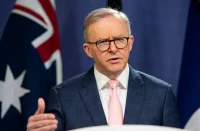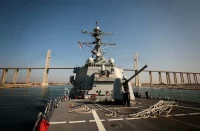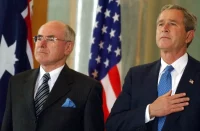(Please read the first two articles, “Is the Tripartite really on the verge of ‘dicing up’ Syria?” and “Syria’s diplomatic ammo going into the Astana political fight”, in order to understand the relevant background and analytical forecasts pertaining to Syria’s situation after the latest ceasefire. This article is a summarized review of the two preceding pieces and should accordingly be treated as a reference source.)
The Reuters article is full of speculative and unconfirmed information, some or all of which might not even be true, but it’s a provocative way to spark an analysis about the upcoming Astana peace talks. There are undoubtedly forces within the Tripartite which truly believe that the “federalization” (internal partition) of Syria and a ‘soft’ regime change against President Assad are to Syria’s long-term and sustainable benefit, no matter how much this jars with the author’s own standpoint and that of the Syrian government itself. This inconvenient reality needs to be dealt with sooner or later, and while the article might in fact even just be a massive disinformation weapon, it inadvertently serves as an opportune time to analyze these issues at length. First off, any talk about a “political transition” doesn’t have to mean what the Mainstream Media says it does, since UNSC Res. 2254 (2015), which is guiding the entire process, basically only lays out that a new constitution and elections are needed and doesn’t dictate anything about “federalization” or the fate of President Assad.
This means that unless any ‘concessions’ are made during the Astana talks or its successor negotiations, then his political future rests in the hands of Syrians themselves, as it should. Similarly, so too should the issue of “federalization”, just as President Assad previously said in relation to how this would necessitate a constitutional referendum anyhow. While Reuters cites unnamed sources to build the narrative that Russian and Turkish diplomats feel differently about these issues (which puts them into assumed conflict with their Iranian peers), there’s no evidence that Moscow does, although obviously Ankara has publicly said that it wants President Assad to step aside (which might not be its true position but instead a face-saving slogan) and is totally against the establishment of a “federalized” Kurdish statelet. In the unlikely scenario that Russia and Turkey are serious about these two demands, then Syria has a few tricks up its sleeve that it could apply in reducing these two states’ lobbying efforts and getting them to understand why they’re not to anyone’s overall advantage.
 By emphasizing the previously agreed-upon point that Syria’s future must be democratic, Damascus can always raise the possibility that these controversial initiatives would need to be voted upon in a nationwide referendum or series thereof, the results of which are heavily expected to reinforce the government’s position. This is only logical as the SAA is winning the war and has the strength of the people behind it, though due to a lack of political will from both Russia and Iran, it is unable to ‘finish the job’ in militarily liberating every inch of the country and thus must resort to political means to settle the conflict, hence the ‘horse trading’ and ‘compromises’ that are expected to occur in Astana and beyond. Since it’s impossible under the present circumstances for Damascus to force each and every one of its dearly held positions onto the “moderate opposition rebels”, it must ultimately ‘concede’ on at least something of symbolism, and therein lays the relevance of the “municipal autonomy” proposal which could satisfy this ‘requirement’ and help advance the talks to their final conclusive stage.
By emphasizing the previously agreed-upon point that Syria’s future must be democratic, Damascus can always raise the possibility that these controversial initiatives would need to be voted upon in a nationwide referendum or series thereof, the results of which are heavily expected to reinforce the government’s position. This is only logical as the SAA is winning the war and has the strength of the people behind it, though due to a lack of political will from both Russia and Iran, it is unable to ‘finish the job’ in militarily liberating every inch of the country and thus must resort to political means to settle the conflict, hence the ‘horse trading’ and ‘compromises’ that are expected to occur in Astana and beyond. Since it’s impossible under the present circumstances for Damascus to force each and every one of its dearly held positions onto the “moderate opposition rebels”, it must ultimately ‘concede’ on at least something of symbolism, and therein lays the relevance of the “municipal autonomy” proposal which could satisfy this ‘requirement’ and help advance the talks to their final conclusive stage.
Instead of facing the risk of Syria uncontrollably collapsing into a collection of quasi-independent identity-centric statelets ruled over by “federal” militias and warlords, the future of the Arab Republic would be much more stable and predictable. “Municipal autonomy” is exactly what it sounds like, except that it would only apply to provincial capitals and grant them the power to more independently carry out their local legislative and financial responsibilities with relatively less central oversight. Of course, the direction that this takes would be totally contingent on the results of regular municipal elections, which would in principle serve as a check-and-balance system against abuse of this arrangement. Even in the unlikely instance that some loophole or another is exploited in the proposed framework, the consequences wouldn’t be too catastrophic because they’d be contained to the outlined provincial capitals’ municipal borders and not in any of the nearby villages, and furthermore, the local police forces in these cities would never be in a realistic position to challenge the SAA.
This proposal therefore goes a very long way towards mitigating the danger that an actual civil war could occur after the present conflict ends and also prevents the country from collapsing amidst any proposed “federalization” (internal partition). Additionally, it’s symbolic enough of a ‘concession’ that it could work to satisfy the demands of some of the “moderate opposition rebels” and mollify the speculated lobbying efforts that Reuters reportedly says that Russia and Turkey are engaging in. “Municipal autonomy”, alongside the fate of President Assad, would also be dependent on the nationwide referendum so that every important decision is ultimately a reflection of the popular will of the Syrian people. If misguided Russian diplomats and ill-intentioned Turkish ones remain obstinate and continue their hard lobbying efforts, then Syria could play the Iranian card by appealing to Tehran’s grand strategic interests in order to have Tehran diplomatically calm them down and get them to sober up.
All in all, while the Reuters report is likely filled with a bunch of disinformation, it does provide a relevant opportunity to explore some rather uncomfortable possibilities and brainstorm realistic and pragmatic solutions for Syria to apply in the event that the worst-case diplomatic scenarios surprisingly transpire.
(Postscript: The author is a dedicated believer in the unitary nature of the Syrian Arab Republic and believes that President Assad, as the democratically elected and legitimate president of his country, should remain in office and only have his future determined by the will of the Syrian people themselves. This three-part article series is written in response to the Reuters article and in order to constructively address the worst-case scenarios, though the author does not think they are likely and gives little credence to what the agency wildly speculated upon in its piece.)














Pingback: What in the World just Happened to Russia’s Syria Strategy? Part-I - Regional Rapport
Pingback: Strategic Assessment of the War on Syria in Fall 2018: Idlib & the Northeast – Counter Information
Pingback: La Syrie après le dernier cessez-le-feu 3/3 | Arrêt sur Info